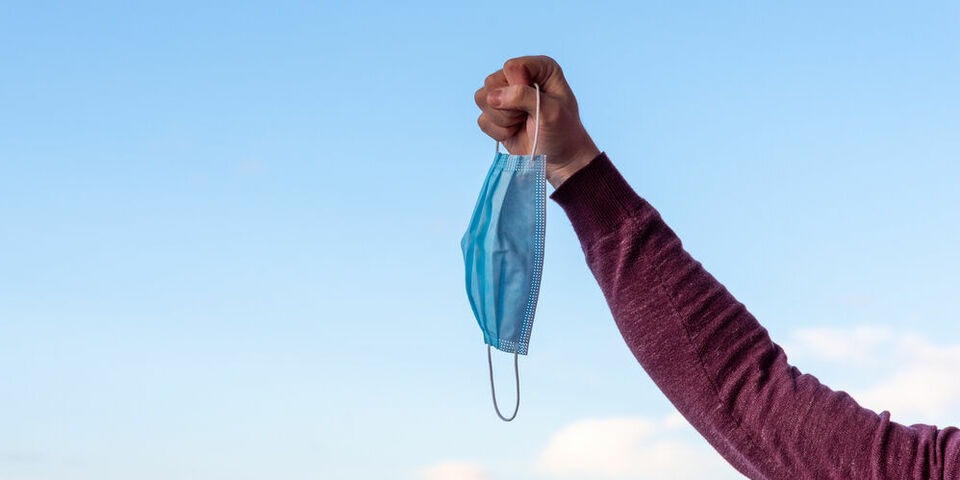Months of lockdowns, classes via Teams… is it going to happen all over again? The government introduced several relaxations in September. Social distancing was abolished and full lecture halls were allowed once again. Last week, Executive Board president Robert-Jan Smits said during the University Council meeting that he wanted to do everything he could to keep the university open. “I’m even willing to drive those who haven’t been vaccinated yet to the nearest vaccination location on my bicycle,” he told the council members jokingly.
But hospitals are admitting an increasing number of coronavirus patients. The government has underestimated the progress of the virus and will come up with new measures on Tuesday.
Will campuses close their doors again?
No, said outgoing Education Minister Ingrid van Engelshoven unequivocally at the opening of the new academic year. “We’ll definitely not be doing that again.”
And social distancing?
That would not be a problem because the campus would not have to close its doors. Educational institutions might have to ensure once again that everyone can keep a safe distance. And there might again have to be a restriction in the number of students in a lecture room.
What about face masks?
Face masks are still required on public transport, so why not in higher education? It’s rather a question of ‘nothing ventured, nothing gained’, because Dutch experts are sceptical about the effect. Two Belgian universities have, on their own initiative, made face masks compulsory again, as a signal to their government.
Surely the vast majority of students have been vaccinated?
Up to now, 69 percent of young people aged 18 to 25 have been vaccinated. The university announced on October 1 that over 90 percent of all TU/e students had been fully vaccinated at that time, and that another 6 percent had already received one dose of the vaccine or was scheduled to receive a first dose. As a result, the vaccination rate would exceed 96 percent. These results were obtained from a large survey that was carried out by the university between 10 and 20 September. Similar surveys, carried out at Wageningen University and Research and VU Amsterdam for example, also showed that the vaccination rates at these institutions are higher than the national average. But the virus is still around.
What about the coronavirus entry passes?
You are no longer supposed to be allowed into cafés, restaurants and cinemas without the QR code in the CoronaCheck app. That requirement does not currently apply in higher education, but it might in the future. The government does not want to introduce it unless there is a risk of an “unacceptable shortage of face-to-face education”. We do not yet know what ‘unacceptable’ is.
Could Rutte and De Jonge decide unilaterally to require QR codes in higher education?
No. The Education Minister has to submit the measure to the House of Representatives and the Senate a week in advance and the participation councils must then have their say on the introduction and structure at the various higher education institutions. So it will take some time.
On what topics can the participation council have its say?
If students and employees of a particular educational institution are opposed to coronavirus entry passes, in the opinion of the House of Representatives there is little point in making them compulsory. In that case, the better option is for the institution to switch to online teaching. If nevertheless entry passes are made compulsory, teaching must remain available to unvaccinated students, for example through rapid testing on campus or alternative forms of teaching.
On a practical level, how is it possible to check all those students and employees?
In Germany they have already introduced coronavirus entry passes in higher education, and they carry out spot checks in roughly the same way as with fare dodgers on trains. So they don’t have to set up checkpoints at every door.
Are politicians in favour of QR codes in higher education?
The opposition parties to support the temporary law on coronavirus entry passes are Volt and GroenLinks. SP, PvdA and PvdD were against it, as were SGP, Denk, PVV, Forum and the rest.
And other measures?
A ban on events could also hit higher education. Congresses would then not be possible either. To reduce peak hour traffic, the government could also decide that, for example, teaching has to begin at 11.00 and end at 15.00 (as last year).


Discussion